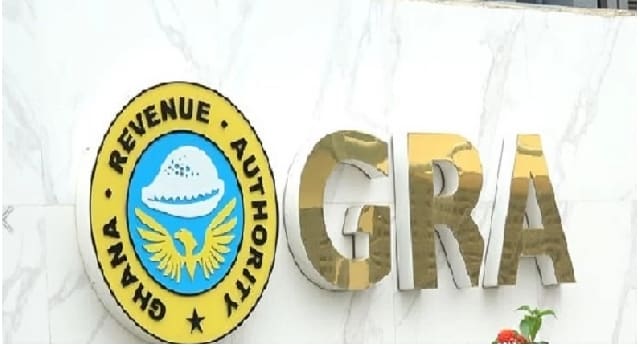Ghana’s petroleum sector surface rental arrears have surged to a record US$2.82 million as of June 2025, representing a more than sixfold increase from US$439,000 recorded during the same period last year, according to the Public Interest and Accountability Committee’s (PIAC) latest semi-annual report.
The sharp rise in unpaid fees comes despite the Ghana Revenue Authority (GRA) collecting US$863,000 in surface rentals during the first half of 2025, highlighting a persistent enforcement challenge that continues undermining government revenue collection from oil companies operating in Ghanaian waters.
Surface rentals are annual fees that petroleum companies must pay for the right to explore and operate within designated blocks. These payments represent non-tax revenue that should flow predictably to government coffers, yet collection has proven chronically difficult across multiple administrations.
PIAC Vice Chair Dr. Steve Manteaw raised the arrears issue during the report’s presentation this week, calling on government to strengthen enforcement mechanisms and recover outstanding amounts from both active and terminated petroleum agreement holders. The accumulated debt represents revenue that Ghana desperately needs as overall petroleum receipts have dropped sharply this year.
Ghana earned a total of US$370.3 million in petroleum revenue during the first half of 2025, down 56% from the US$840.77 million recorded in the same period last year. That dramatic decline stems primarily from a 26% drop in crude oil production, which fell from 35.5 million barrels in the first half of 2024 to just 26.3 million barrels this year.
Within this challenging revenue environment, surface rentals contributed less than 1% of total petroleum inflows, yet the fees carry symbolic importance beyond their modest financial contribution. When companies can avoid paying what amounts to basic operating fees without serious consequences, it signals weak enforcement that potentially extends to other compliance areas.
The Business & Financial Times reported that unpaid surface rentals climbed despite repeated recovery efforts by the GRA, suggesting that current enforcement mechanisms lack sufficient teeth to compel payment. Some of the outstanding amounts date back years and involve companies whose petroleum agreements were terminated in 2021, raising questions about whether Ghana has effective legal recourse to recover debts from operators who’ve exited the market.
The arrears problem isn’t new. Historical PIAC reports have consistently identified surface rental collection as one of the weakest aspects of Ghana’s petroleum revenue management system. What’s concerning about the 2025 figures is that arrears increased so dramatically even as the GRA reportedly intensified collection efforts under the Petroleum Revenue Management Regulations, 2019.
Among active operators, payment compliance varies widely. Some companies settle their obligations promptly, while others accumulate arrears across multiple years without apparent consequence. This inconsistency creates equity concerns where compliant companies effectively subsidize non-compliant competitors who gain competitive advantage by avoiding legitimate costs.
The GRA has established an Exchange of Information Unit tasked with tracing absconded taxpayers, including three individuals whose petroleum agreements were revoked by the Minister for Energy for contractual breaches. However, tracking down former operators proves challenging when they’ve left Ghana’s jurisdiction and may have limited assets within reach of local enforcement.
Terminated companies including UB Resources, Britannia-U, and Swiss African Oil Company reportedly owe substantial amounts that may never be recovered if these entities have dissolved or moved assets beyond Ghana’s legal reach. That reality underscores the importance of enforcing payment discipline while companies remain active rather than hoping to collect after relationships have soured.
The surface rental situation reflects broader governance challenges in Ghana’s extractive industries. When companies can delay or avoid mandatory payments without facing license revocations, contract terminations, or other serious penalties, it suggests either weak regulatory frameworks or insufficient political will to enforce existing rules.
Dr. Manteaw’s public highlighting of the arrears increase serves as both accountability measure and pressure tactic, using transparency to shame non-compliant companies and push regulatory agencies toward stronger action. Whether that publicity generates meaningful enforcement improvements remains to be seen.
For Ghana’s petroleum sector, the arrears crisis compounds concerns about declining production, falling revenues, and insufficient new investment. The country needs a functioning, well-enforced regulatory system that ensures all operators meet their obligations consistently. Current performance suggests significant gaps remain between policy intentions and operational reality.
The Ministry of Energy and the Petroleum Commission both share responsibility for monitoring compliance and recommending enforcement actions when companies default on payments. The fact that arrears have grown so substantially indicates these oversight bodies either lack adequate enforcement tools or haven’t deployed available mechanisms effectively.
As Ghana’s petroleum revenue continues declining due to production challenges and lower global oil prices, every dollar of uncollected surface rentals represents foregone government income that could support essential services or debt reduction. The US$2.82 million in arrears may seem modest compared to overall petroleum revenues, but it’s money Ghana is legally entitled to collect and should aggressively pursue.
PIAC’s role in publicly documenting these collection failures provides crucial transparency, but transparency alone doesn’t recover debts or prevent future non-compliance. Government must translate this accountability pressure into concrete enforcement actions that demonstrate serious consequences for companies that treat mandatory payments as optional expenses.
Source: newsghana.com.gh











